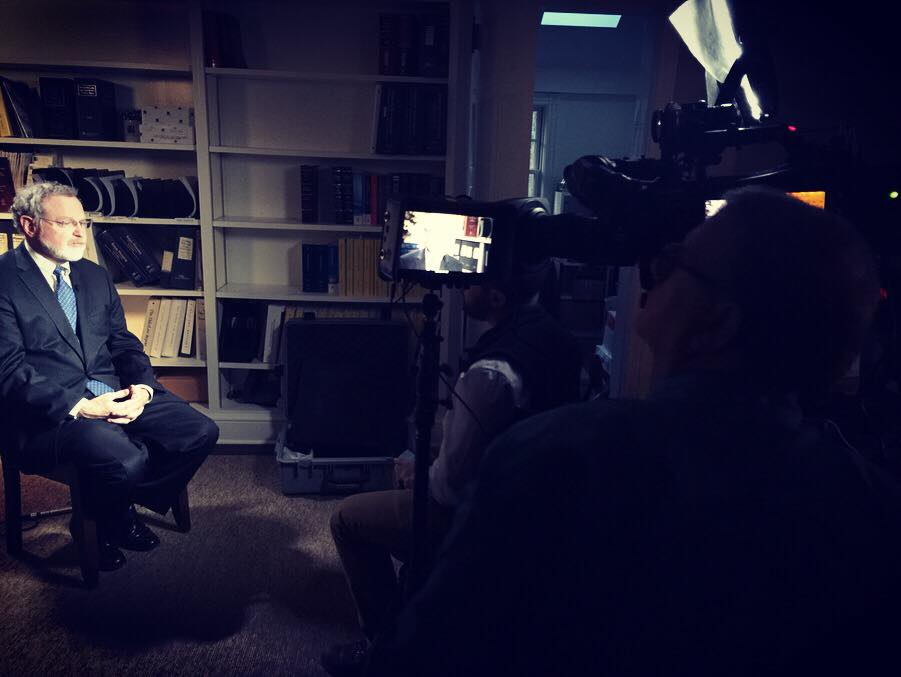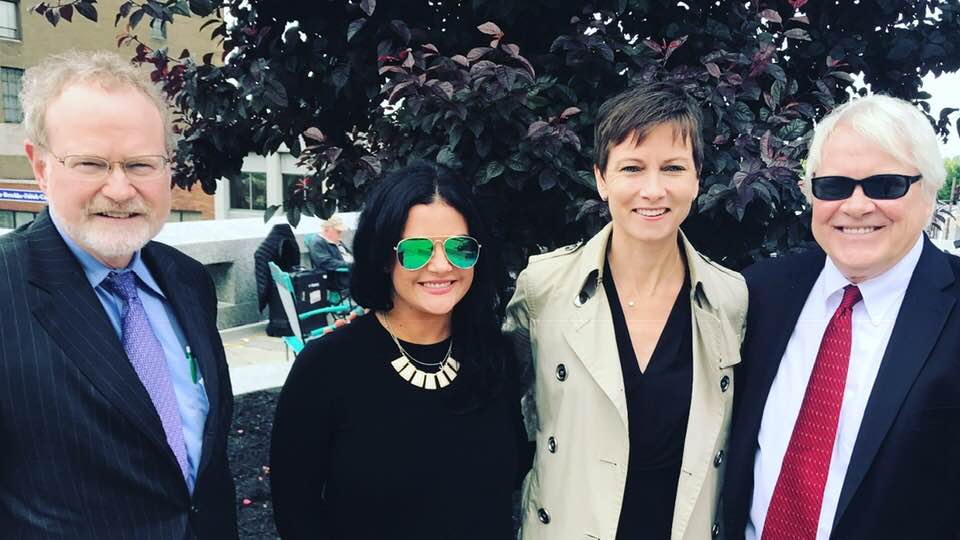McAndrews Law Offices’ Connections with Journalists
By Allyson McAndrews, M.Ed.
Director of Communications and Marketing
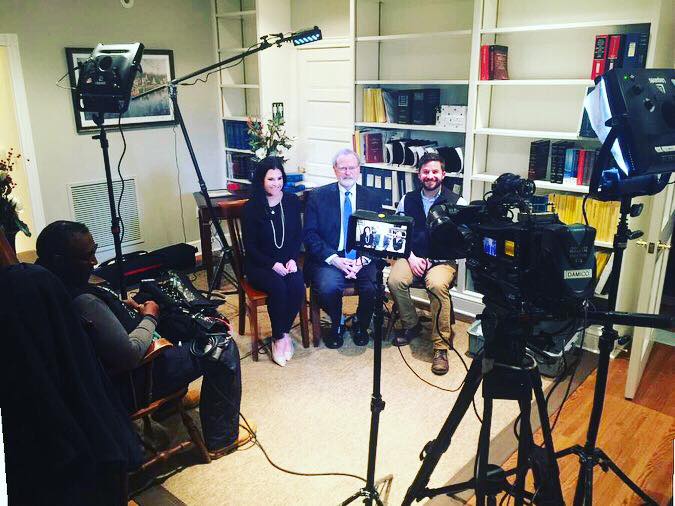 Since our inception in 1982, McAndrews Law Offices has maintained excellent relationships with a great many members of the print and broadcast news media. Over the past 40 years, our attorneys and I have found journalists to be hard-working, insightful, and committed to providing news stories which are accurate, informative, interesting, and beneficial to the public. We have always been willing to provide journalists with the benefit of our experience and expertise in areas such as criminal justice, education law, wills and trusts, disability law, public policy, Title IX and higher education matters, and more.
Since our inception in 1982, McAndrews Law Offices has maintained excellent relationships with a great many members of the print and broadcast news media. Over the past 40 years, our attorneys and I have found journalists to be hard-working, insightful, and committed to providing news stories which are accurate, informative, interesting, and beneficial to the public. We have always been willing to provide journalists with the benefit of our experience and expertise in areas such as criminal justice, education law, wills and trusts, disability law, public policy, Title IX and higher education matters, and more.
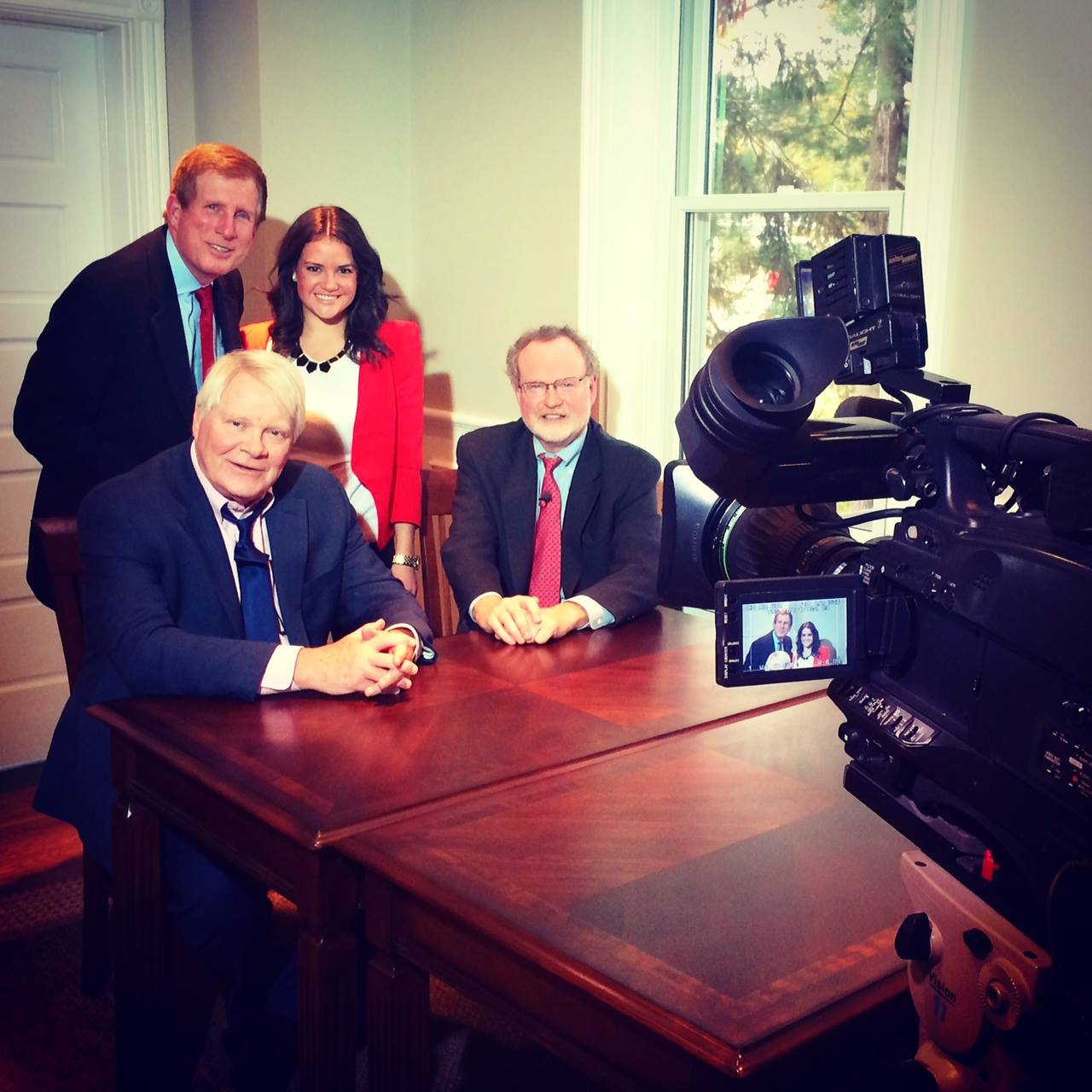 Our team understands that journalists have a critical job to perform in our democratic, constitutional system, and that the work of a free press in informing the public is crucial to our national interest. In the words of Thomas Jefferson, “Where the press is free, and every man able to read, all is safe.” Of course, experience is the best teacher. We have learned over the course of our professional lives that connections with the news media do not happen overnight, but like any association, attention and effort must be invested in the relationship. Below are some of the lessons we have learned in maintaining good relationships with the news media.
Our team understands that journalists have a critical job to perform in our democratic, constitutional system, and that the work of a free press in informing the public is crucial to our national interest. In the words of Thomas Jefferson, “Where the press is free, and every man able to read, all is safe.” Of course, experience is the best teacher. We have learned over the course of our professional lives that connections with the news media do not happen overnight, but like any association, attention and effort must be invested in the relationship. Below are some of the lessons we have learned in maintaining good relationships with the news media.
-
Reach out in advance.
Where a member of the firm has experience and background which might assist reporters as they prepare their stories about a major news event, reporters appreciate knowing that an individual with expertise is willing to speak on the record about that issue to provide substance and direction in the news reporting. We all must keep in mind that most Americans do not have a law degree; therefore, journalists are often very appreciative to have the assistance of someone with such a degree and background which allows them to dissect and explain a current issue (news/ hot-topic) for the general public.
-
Always have something highly relevant to offer.
No one likes to have their time wasted, and news journalists are always writing or reporting to a deadline. Their job is to communicate the news in an extremely timely manner. The last thing you want to do is delay their reporting. As Hall of Fame broadcaster Richie Ashburn once said, “If you don’t have something to say, don’t say it.”
-
Stick to your area of expertise.
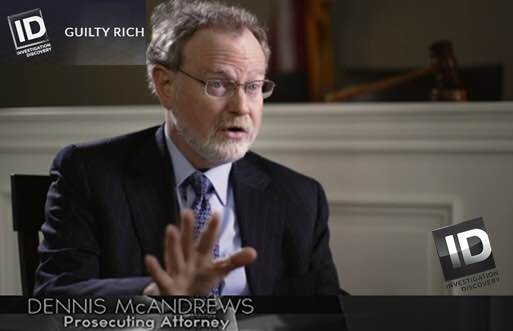 Simply because you are a lawyer or doctor or other professional, does not mean that you can talk on any subject within your profession. The world is highly specialized, and journalists need accurate and insightful information – not banal generalities. In order to maintain good working relationships with the media, you must be completely clear on your knowledge of specific topics.
Simply because you are a lawyer or doctor or other professional, does not mean that you can talk on any subject within your profession. The world is highly specialized, and journalists need accurate and insightful information – not banal generalities. In order to maintain good working relationships with the media, you must be completely clear on your knowledge of specific topics.
-
Before offering comment, do your research and your homework in advance.
Providing useful and insightful comments to journalists is work, not play. And nothing is worse than being quoted in an article, only to have other more insightful commentators forcefully rebut your statement. This is also a proven way to cut off a valuable relationship with a journalist. On top of that, you are not benefiting your own practice.
-
Be accessible.
 Recognize that journalists have deadlines and require a quick turnaround on telephone calls, texts, and emails. From a practical perspective, if you are not accessible, journalists will work with professionals who make themselves available for interviews and respect the time-sensitive needs of journalists. If you get a call back from a reporter, be prepared to know that their deadline can be within just a few hours. With the internet available at our fingertips, news is being published constantly, meaning, reporters want information as fast as possible vs. “in time for tomorrow’s newspaper”. In today’s world, “tomorrow’s newspaper” is old news.
Recognize that journalists have deadlines and require a quick turnaround on telephone calls, texts, and emails. From a practical perspective, if you are not accessible, journalists will work with professionals who make themselves available for interviews and respect the time-sensitive needs of journalists. If you get a call back from a reporter, be prepared to know that their deadline can be within just a few hours. With the internet available at our fingertips, news is being published constantly, meaning, reporters want information as fast as possible vs. “in time for tomorrow’s newspaper”. In today’s world, “tomorrow’s newspaper” is old news.
-
Park your ego at the door.
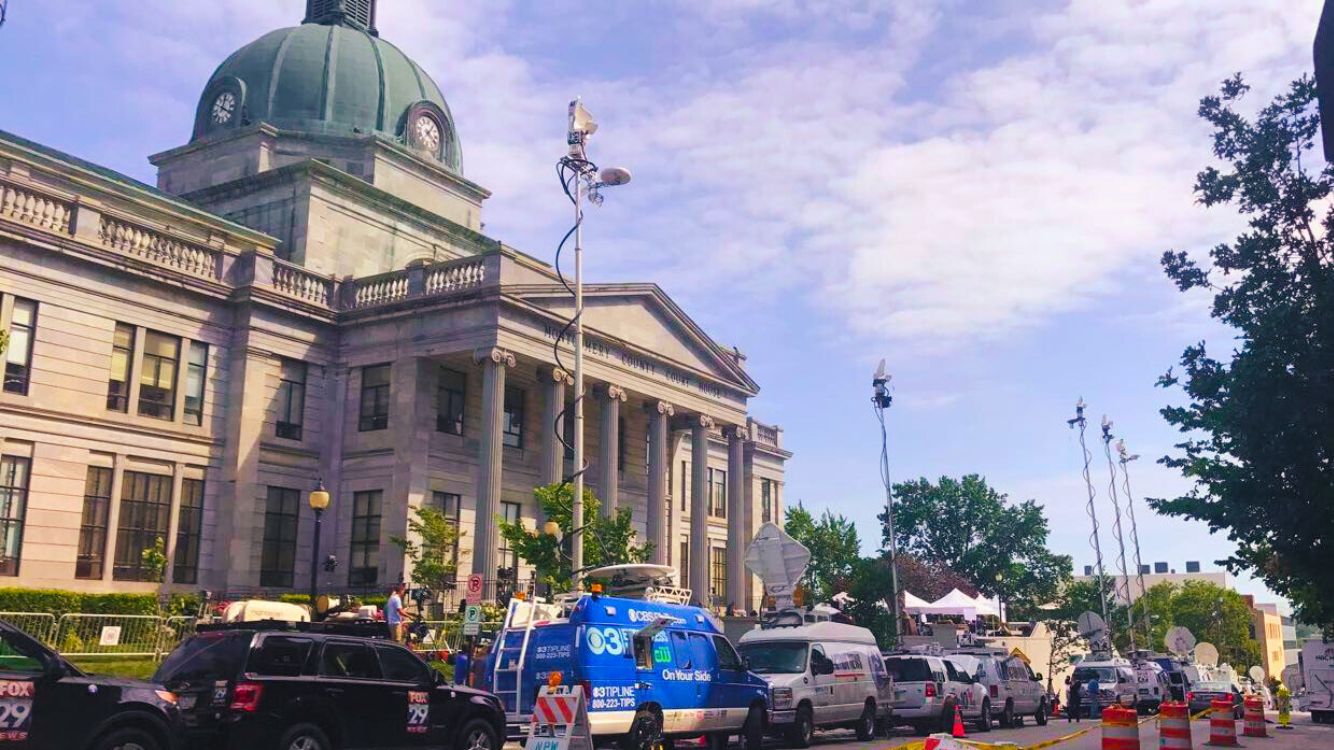 If a tiny station or publication asks you for a comment, treat them with the same respect and courtesy as you would a national news program. And remember – national news reporters started somewhere, most likely at a small radio station and they do not forget who respected their professionalism as they climbed the journalistic ladder. Finally, always keep them posted on developing issues that pertain to your areas of expertise. This is extremely helpful for journalists when putting together their stories.
If a tiny station or publication asks you for a comment, treat them with the same respect and courtesy as you would a national news program. And remember – national news reporters started somewhere, most likely at a small radio station and they do not forget who respected their professionalism as they climbed the journalistic ladder. Finally, always keep them posted on developing issues that pertain to your areas of expertise. This is extremely helpful for journalists when putting together their stories.
-
Assist the media, even if you aren’t going to be quoted.
Journalists have a demanding job, particularly because they are expected to be well-versed on a wide variety of topics. Journalists will often call outside sources for background information to better understand an issue or a legal process, and it is important to be willing to assist them even when it is clear that the story will not mention you. As noted above, journalists will not forget the fact that you helped them when it was of no immediate value to you, and they will swing back to you when they need comment for publication.
-
Be uniformly pleasant.
If you are interviewed for a television broadcast, thank everyone, not just the on-air reporters. The cameramen, producers, and runners are all working hard, and they appreciate being recognized with a handshake and a genuine “Thank you!”. Ask all of them about their lives, families, and interests as they are often called away from their loved ones and appreciate recognition for their hard work and difficult schedules. Working in the news media business is never a 9 – 5 job. There are constantly moving parts, so keep in mind that they have a hectic workload that they endure on a daily basis.
-
Always remember that you are not the story — EVER.
If you are being interviewed, the purpose is to seek your comment about something much bigger than yourself, and a good journalist can immediately tell when a person being interviewed is more interested in being quoted than in helping the reporter and the reading and/or listening public in understanding the news event. Remember, if you are being interviewed, it is often because of your expertise, so there is no need to boast about yourself – you are already being interviewed for a specific and unique reason. Stick with the story!
-
Don’t hold grudges.
The ebb and flow of news reporting will sometimes cause lengthy interviews or promises of interviews to be pushed aside, ignored, or forgotten. In the chaotic contemporary 24/7 news cycle, it is inevitable that interviews will fall to the cutting room floor. This is no one’s fault, but is simply a fact of journalistic life, and no one should ever feel disrespected by the fact that it happens from time to time. Everyone has a job to do, so remember that nothing is personal. Breaking news is out of anyone’s control.
-
Stay in touch.
As a final follow-up to Tip #1, there is never harm in reaching back out to a reporter or media personnel post-interview to thank them for their time and offer assistance in their future news stories. When it comes to relationships with the media, there isn’t success in being silent – meaning, it’s always important to maintain a positive and proactive approach to staying connected with the news media in an effort to assist them in relaying the most accurate news to the public. (Picture: Dennis McAndrews, Ally McAndrews, and Joe McGettigan of McAndrews Law with Stephanie Gosk of NBC News.)

